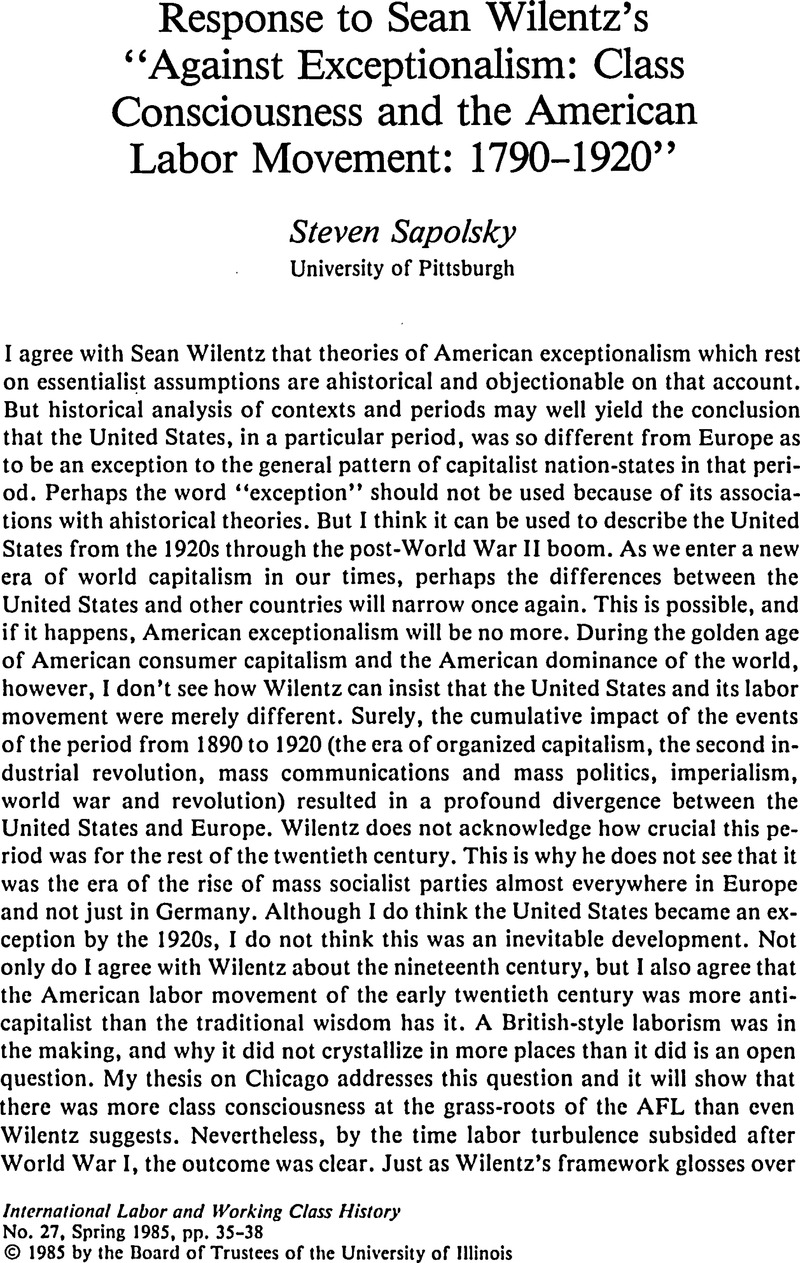Article contents
Response to Sean Wilentz's “Against Exceptionalism: Class Consciousness and the American Labor Movement: 1790–1920”
Published online by Cambridge University Press: 16 October 2009
Abstract

- Type
- Letters
- Information
- Copyright
- Copyright © International Labor and Working-Class History, Inc. 1985
References
NOTES
1. McKibbin, Ross, “Why Was There No Marxism in Great Britain?” The English Historical Review 99 (April 1984).Google Scholar
2. Thompson, E. P., “The Peculiarities of the English,” in The Poverty of Theory and Other Essays (New York, 1978).Google Scholar
3. See, for example, Walling, William E., Socialism as It Is: A Survey of the World-Wide Revolutionary Movement (New York, 1912) 215Google Scholar, and Herron, George D., “The British Labor Party and American Socialism,” The Miners Magazine, 7 Spring, 1909Google Scholar, reprinted from the New York socialist Daily Call.
4. Bagwell, Philip S. and Mingay, G. E., Britain and America: A Study of Economic Change, 1850–1939 (New York, 1970), 204.Google Scholar
5. For the role of the cooperative movement in the grass-roots of laborism, see the provocative comments in “Editorial: The Labour Party and Social Democracy,” History Workshop Journal 12 (Autumn 1981).Google Scholar
6. Rubinstein, W. D., “The End of ‘Old Corruption’ in Britain, 1780–1860,” Past and Present 101 (11 1983), 81–82CrossRefGoogle Scholar; Cunningham, Hugh, “The Language of Patriotism, 1750–1914,” History Workshop Journal 12 (Autumn 1981).Google Scholar
- 2
- Cited by


